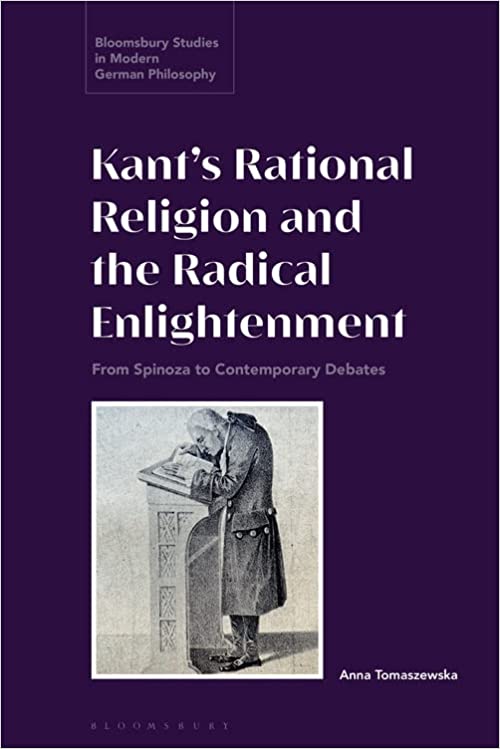We are very glad to give notice of the release of the volume Kant’s Rational Religion and the Radical Enlightenment. From Spinoza to Contemporary Debates, by Anna Tomaszewska (Bloomsbury, 2022).
From the publisher’s website:
Kant’s defence of religion and attempts to reconcile faith with reason position him as a moderate Enlightenment thinker in existing scholarship. Challenging this view and reconceptualising Kant’s religion along rationalist lines, Anna Tomaszewska sheds light on its affinities with the ideas of the radical Enlightenment, originating in the work of Baruch Spinoza and understood as a critique of divine revelation.
Distinguishing the epistemological, ethical and political aspects of such a critique, Tomaszewska shows how Kant’s defence of religion consists of rationalizing its core tenets and establishing morality as the essence of religious faith. She aligns him with other early modern rationalists and German Spinozists and reveals the significance for contemporary political philosophy.
Providing reasons for prioritizing freedom of thought, and hence religious criticism, over an unqualified freedom of belief, Kant’s theology approximates the secularising tendency of the radical Enlightenment. Here is an understanding of how the shift towards a secular outlook in Western culture was shaped by attempts to rationalize rather than uproot Christianity.
***
Here the table of contents:
Acknowledgments
Introduction
1. Towards the Radical Enlightenment: Setting the Stage for a Debate
2. Spinoza’s God in Kant’s Pre-Critical Writings: A Departure from Theistic Metaphysics
3. The Moral Atheist and a Schwärmer. Kant’s Critique of Spinoza
4. The Primacy of the Practical in Kant and Spinoza
5. Kant’s Religious Rationalism and Spinoza
6. The Enlightened Church. Kant’s Contribution to Debates on Secularization
7. The Divinity of Reason in the Opus postumum
Concluding Remarks
Notes
Bibliography
Index


